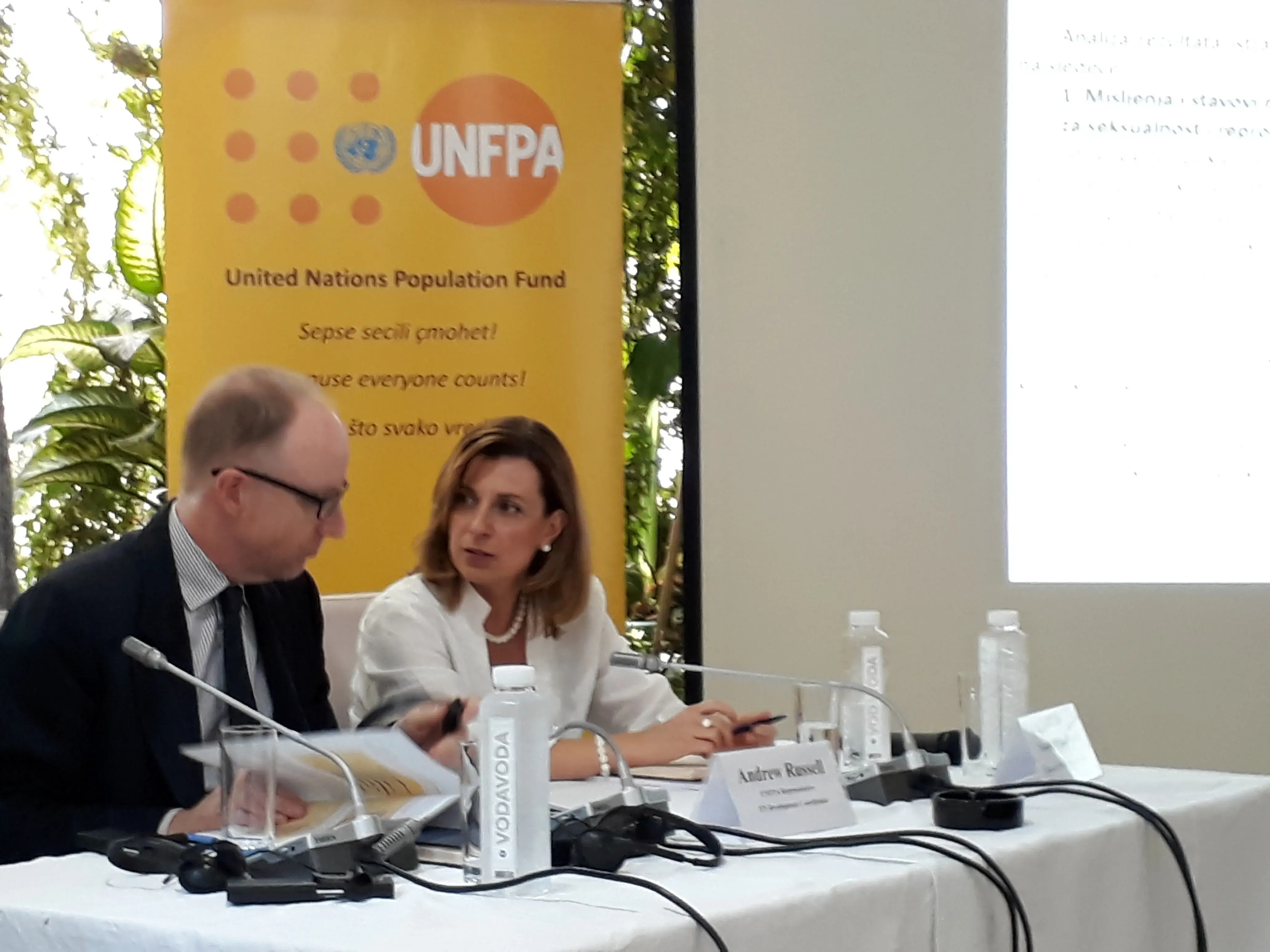Survey on Adolescents and youth knowledge, attitudes and behaviors on Sexual and Reproductive Health and Gender- Based Violence
The event on presentation of the results from the research “Survey on adolescents and youth knowledge, attitudes and behaviors on Sexual and Reproductive Health and Gender- Based Violence” was organized on 05 June 2017 in North Mitrovica .
The event was chaired by Visare Mujko Nimani, Head of UNFPA program in Kosovo. Guest speaker was Mr. Andrew Russell UNFPA Representative/UN Development Coordinator. Results of the research were presented by Ms. Jelena Milicevic representative of NGO “Misija Ljudi Zvecan”.
The research is a component of joint UNKT program on GBV in Northern Kosovo” A Comprehensive and Inclusive Approach to Addressing Gender Based Violence in Northern Kosovo implemented by UNFPA , UNDP, UNWomen, UNICEF and OHCHR, funded by Finish Government. Aim of the research was to : identify influences of psychological and demographic factors of youth on sexual and reproductive health, their perception, attitudes and understanding of gender based violence in the northern Kosovo.
This research has been implemented by NGO Mission of People Zvečan and was done in high schools and faculties in Mitrovica, Leposavić, Zvečan and Zubin Potok
General results of the survey concerning sexual and reproductive health are: Research shows that internet, peers and parents are the most represented sources of information about sexuality and reproductive health. Unfortunately, these sources are not necessarily acurate and reliable sources of information. Incomplete information, obtained by using internet or from peers can give a distorted perception of sexual experiences and incomplete understanding of sexual behavior.
General conclusions regarding results of the research of gender based violence shows present, rationally accepted, morally justified, traditionally generated general culture of violence against women, or domestic violence, as well as in partner relations, but also violence in schools, among peers and from teachers/professors. Differentiation, variation and/or (in)equality is taken as the usual way of social functioning.
Result presentation was followed by active participation of guests in the discussion
There was around 40 people present at the event.


